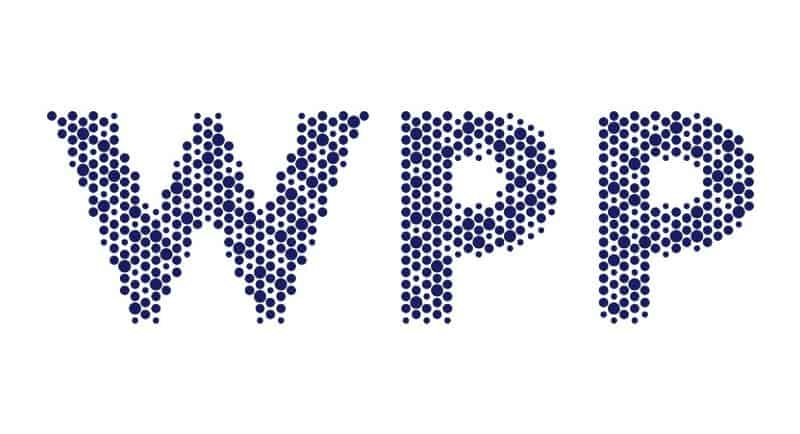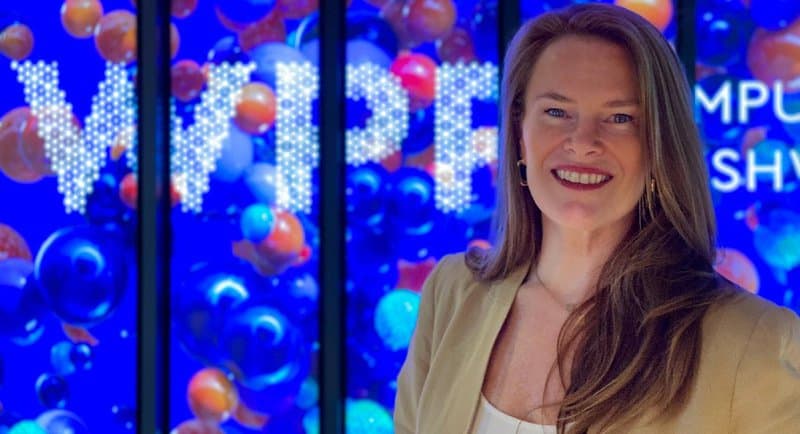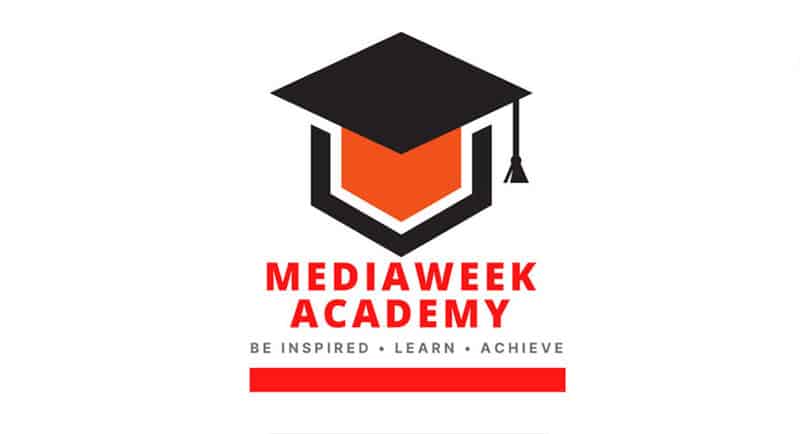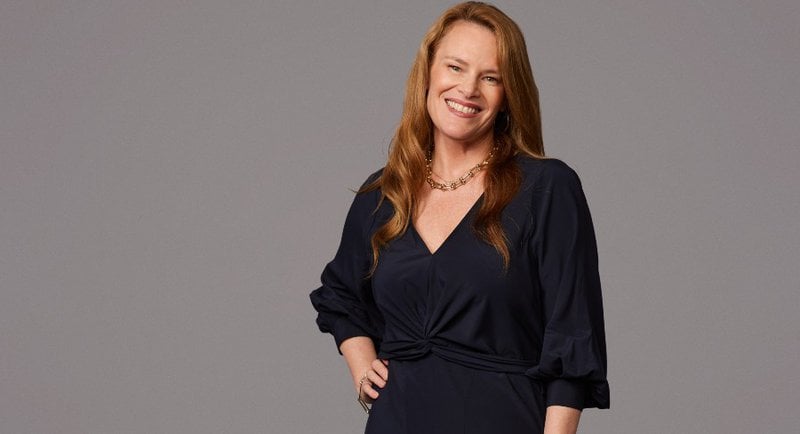Morag Eyles joined WPP earlier this year, stepping into the role of chief people officer of Australia and New Zealand after stints at ANZ, NAB and most recently, Bupa.
Eyles spoke to Mediaweek about WPP’s learning and development offering, addressing the talent shortage, training programs and the key learning areas for a future-focused workplace.
Eyles, a newbie to the media industry, shared that she was introduced to WPP via an ex-colleague and friend.
“We had both worked together earlier in our careers, and her experience was so positive I knew I had to be a part of it. I have much to learn, and I am incredibly fortunate to be surrounded by the best in the industry who are always happy to help me learn,” she said.
How WPP is addressing the talent crisis
The talent crisis has significantly impacted the industry as a whole, with industry churn at +20%, according to Eyles. WPP addresses this through career opportunities, wellbeing initiatives and its candidate-centric hiring process.
“It is a competitive marketplace right now, so we know talent reflects what’s important to them in their career choices. Getting feedback and listening is how we’re able to adapt and ensure that the programs and initiatives reflect what our people want,” she said.
Career opportunities
Eyles noted that WPP’s most south-after program is its global mobility initiative. This geolocation policy supports the growth of its more than 110,000 employees worldwide.
“This policy is underpinned by Career Explorer, a tool launched by WPP globally to showcase open roles across the networks to make it easier for talent to take charge of their career growth,” she explained.
Eyles noted that within Australia and New Zealand, WPP is increasing visibility and communications around the opportunities that exist across their companies. “Even if it means supporting their candidacy for other opportunities within the WPP network outside their agency,” she said.
“We’re always looking for ways to prioritise career development – promoting a culture of continuous improvement is something we strive to uphold. But of course, after years of immensely challenging circumstances for all our employees, we want to ensure that wellbeing comes first.”
Wellbeing
WPP has partnered with Wellbeing Outfit to drive the practical application of its Mental Health Champions. This ensures they create an open culture and that their people get the care they need.
Eyles also noted that WPP’s global employee assistance program and Headspace are additional free support tools available to employees and their loved ones.
The company also launched its Making Space initiative earlier this year, a global companywide initiative. It allows its employees to take a four-day weekend to take care of their wellbeing, inspire creativity, rest, recharge and reconnect with family and friends.
“It was great to see everyone embrace this and share their stories of how they spent that time,” she said.
“After the long weekend, we hosted a series of events, performances, and experiences across our offices and campuses globally, designed to celebrate our people, work, and creativity,” she added.

Hiring Process
When it comes to hiring, Eyles noted that WPP adopted a candidate-centric approach, particularly with the external hiring of new talent.
“Our teams ensure the candidate experience is kept top of mind. The talent acquisition teams are always working to provide regular touchpoints throughout the recruitment process and provide feedback to candidates. The team also solicits feedback to ensure that the hiring process is continuously improving,” she said.
WPP also engages with internal talent and advocates for them to be brand ambassadors through testing employee programs and incentives in Australia and New Zealand. According to Eyles, this increases their engagement in promoting opportunities within their respective teams and agencies.
Eyles said that it has been crucial for WPP to expand its talent search and invest in emerging talent in a competitive market. The company will continue to maintain partnerships with schools and develop partnerships with diverse community groups.
The company also recently launched Breakthrough, a rigorous 12-month immersion program where cadets can rotate across Hogarth, VMLY&R, whiteGREY and Wunderman Thompson.
“By removing the need for the participants to have any previous experience or post-secondary education, we ensured we attracted the best across a range of diverse backgrounds and skillsets, helping to futureproof our business as the world’s creative transformation company,” she added.
Critical development areas for a future-focused workplace
As the industry evolves rapidly, Eyles noted that their people are eager to stay ahead of the curve and upskill their capabilities as new fields emerge, such as the Metaverse.
“To ensure our people are prepared for this future, WPP has launched the Future Readiness Academies – a unique global learning program, centred around the four pillars of our offer – communications, experience, commerce and technology – to help our entire WPP community gain the skills and knowledge needed for success in a growing digital world,” she said.
“As part of this, our people can join our ‘Metaverse & More’, ‘Martech’, ‘Commerce’, ‘Digital Fundamentals and ‘Data and Insights’ academies,” she added.
Eyles noted that personalised learning and flexibility are essential areas of focus at WPP.
“We also talk more broadly about development across the three ‘E’s’ – i.e., learning doesn’t stop at the formal training or education level. It’s incumbent on each of our people managers to also provide experiences (e.g., project leadership, shadowing) and exposure (speaking opportunities, mentorship, sponsorship) to help their people grow,” she explained.
WPP’s training programs and the future of hybrid learning
WPP has had several successful training programs for its people over the years, including its NextGen Leaders series, launched three years ago.
The 10-week hybrid learning series – for early-career talent across the globe – is designed to introduce talent to WPP, the industry at large, their people, their work, and what it is like to work at an agency, according to Eyles.
“We recognise the importance of access, exposure, learning, and development early in your career, and NextGen Leaders is designed to provide that for anyone with little to no experience in marketing or advertising,” she said.
“This first-of-its-kind learning experience gives talent access to experts across WPP, our clients and partners and provides them with opportunities to gain hands-on experience working on real client briefs across our offer to clients, including communications, experience, commerce, and technology,” she added.
The program also aims to be inclusive and improve diversity at WPP. Eyles noted that its 2021 cohort included over 1,500 people from 60 countries. Of that number, 50% of participants in the US and UK identified as Black, Asian or LatinX, 60% identified as female, 11% identified as LGBTQ+ and 8% identified as having a disability/neurodiversity.

Morag Eyles
WPP’s newer programs are NextGen Health, introducing talent to healthcare advertising, and NextGen Creators in the USA, which addresses the disadvantages that content creators of underrepresented communities face.
In Australia, WPP has launched its High Potentials program. Eyles shared that the program saw 30 high-potential talents across 12 of its companies in Australia and New Zealand develop their leadership, creativity, and client-servicing skills.
“During this process, they become part of a group that will ultimately shape the future of WPP by driving our cultural ambitions across our company purpose,” she said.
Eyles noted the course is for high-potential talent to apply their learnings and experiences and build an action plan that their WPP company can implement for a better future for people, the planet, clients and the community.
“For our inaugural program, our team travelled to southern NSW for a community experience across three days, during which time they learnt about First Nations cultural practices, historical truth-telling and how this plays a critical role in reconciliation,” she said
“Since the program’s launch, we’ve received feedback that the program has been ‘life-changing’ and is already creating better futures while providing purpose. I can’t help but feel intensely proud of this program and think of it as one of our most successful,” Eyles added.
Hybrid learning post-pandemic
Looking at the future of learning, Eyles said it is now a combination of a hybrid of virtual and in-person.
“We have learnt so much over the past two years, specifically how we consume information and learn. People want short, snackable, relevant learning opportunities in real life, not just in a classroom.
Eyles said that WPP is embracing the change and creating experiences so their people can tailor their learning to suit them.
“It’s our job to ensure that online experiences are just as engaging as in-person ones,” she added.
Mediaweek Academy
In July, Mediaweek announced a revised start date for its inaugural Mediaweek Academy due to feedback requesting time to adjust learning and development budgets.
The first semester will commence in February 2023 and conclude in November 2023 for ten lessons. Meanwhile, the curriculum plus the Legends & Superstars remain the same for the new season.
The aim of the Academy – led by industry educator and former media agency leader Greg Graham – is to nurture, train, and develop the industry’s most valuable resource – people.
Morag Eyles endorsed the Academy, calling it a: “fantastic industry initiative.”
“It is another great opportunity to learn and grow, featuring some of our very own fabulous Legends and Superstars, I might add,” she added.
–
Top image: Morag Eyles

